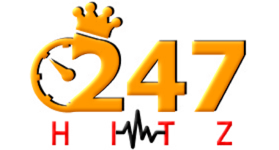Africa is struggling with unregulated lending on an unprecedented scale, exposing millions to a spectrum of danger ranging from debt spirals and destroyed credit ratings to cases of psychological and physical abuse.
Today, we’re examining two specific case studies across the continent, one in Ghana and one in South Africa, in an attempt, to understand the many different guises through which illegal lending can manifest.
Ghana’s Illegal Loan Apps
Online lending phone applications have emerged as a concerning trend in Ghana in recent years, targeting vulnerable low-income earners with enticing offers of quick loans. These apps often engage in fraudulent practices, exploiting borrowers and subjecting them to distressing, undeserved consequences.
One individual reported that, when faced with financial strain to cover university fees, turn to an online loan app to secure a small loan. With the distinct absence of the usual stringent documentation that licensed lenders require, the borrower swiftly received the funds in their mobile wallet, albeit with significant hidden charges tacked on.
Inevitably, what started as a modest loan of approx. $30 quickly ballooned into a debt of over $500 within a mere week, compounded by aggressive debt collection tactics, including the unauthorized dissemination of personal photos and defamatory accusations to the borrower’s contact list, intended to shame and manipulate the victim into paying the extortionate fees.
The scam apps can operate in other ways too. Reports have surfaced about online lending apps demanding non-refundable deposits before disbursing loans, only to vanish once payments are made, leaving borrowers stranded and defrauded.
Other victims have reported being targeted by these fraudulent lenders despite never having to interact with them. These individuals have been wrongly (and very publicly) labelled as defaulting on a debt they never actually loaned.
The ramifications of these abusive campaigns extend beyond financial loss, with victims enduring reputational damage and emotional anguish; numerous victims have reported experiencing profound psychological distress, including anxiety, depression, and even suicidal thoughts following interactions with these predatory online lenders.
Efforts to combat the epidemic have resulted in the arrests of numerous suspects involved in fraudulent lending activities. However, challenges persist in regulating and eradicating these illicit practices.
There is a desperate need for enhanced collaboration between regulatory bodies, law enforcement agencies, and the fintech companies and banks providing credit. This sentiment is echoed across South Africa as it deals with its unregulated lending crisis.
South Africa’s ‘Mashonisa’ headache
A recent report issued by South Africa’s leading personal loan lender Wonga reveals a concerning glut of non-registered credit lenders, (AKA: loans sharks, commonly known as mashonisas). The report suggests that there may be as many as 40,000 such operators in the country,
equating to a ratio of 1:100 for every household across S.A.’s informal settlement communities.
According to the findings, the average loan value typically falls within the range of $25 to $50 with interest rates ranging between 30% and a staggering 50%. Loans exceeding $200 are quite rare, the report notes.
Wonga’s report discovered one key reason frequently cited for the dependency on the Mashonisa: the quick and straightforward access they offer to small, short-term loans, despite lacking legal protection.
They operate illegally and without regulation, allowing them to bypass compliance with the National Credit Act and avoid associated costs.
The result is a straightforward application process, especially for applicants with poor credit who may struggle to obtain credit from a regulated lender. We can begin to see why these loans become attractive to victims in difficult financial circumstances. Despite the easy application process, the terms and conditions of the loan are marred with hidden fees.
The report coincides with a notable increase in the percentage of credit users in South Africa, rising from 57% of the adult population in 2008 to 69% in 2017, as per National Credit Regulator data from 2008 to 2017.
Despite the aggressive collection practices and exorbitant interest rates, the lending report suggests that many Mashonisas may not fit the negative stereotype commonly portrayed in the media. Rather they seem to be firmly embedded in the social fabric of these communities.
Locals often view them as easier, and more convenient alternatives to formal credit options. The lenders themselves will often collaborate locally with each other, sharing lending practices and information about customers with poor credit histories. Just like any other business lunch.
There seems to be no widespread animosity towards community loan sharks simply because they serve a vital function for individuals in need of immediate financial assistance that they can’t get elsewhere. This is ultimately the heart of the problem.
To be fair, the National Credit Regulator and the lenders operating under its umbrella of rules and regulations have been implementing changes to protect consumers.
However, the complex social dynamics at the core of the informal lending industry make attempts to regulate such a vast and culturally engrained channel of informal credit impractical, if not impossible.

